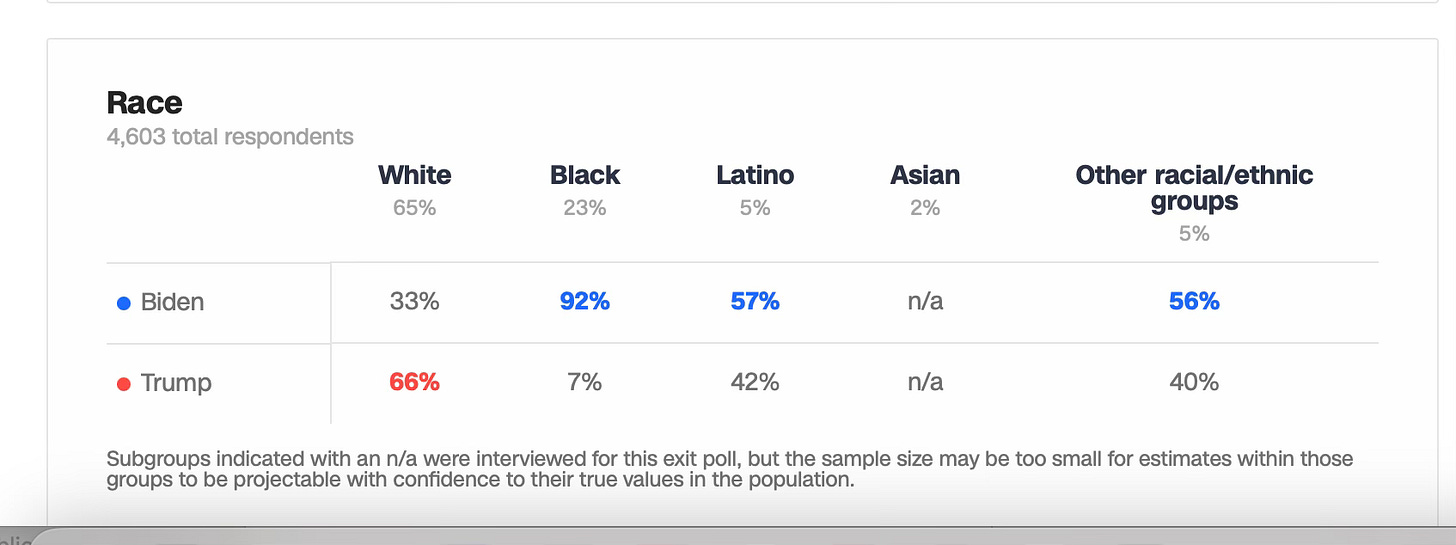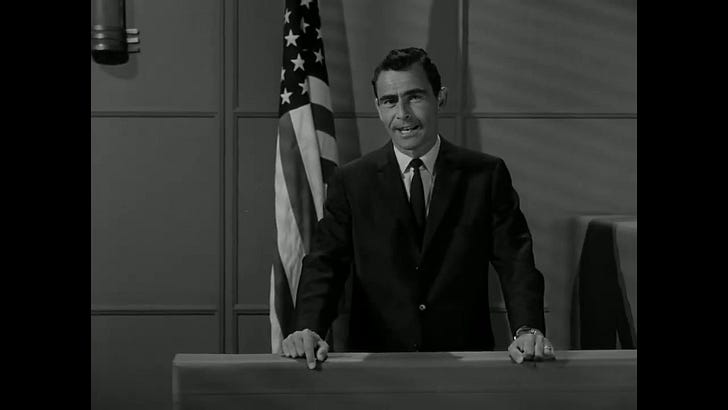California has finally counted all its votes, and we can confirm that Jerry Brown has won the 2010 gubernatorial race. (Seriously, though, the state needs to get its act together.) Almost a month after Election Day, Democrat Adam Gray has narrowly defeated Republican Rep. John Duarte in California’s 13th congressional district. Republicans now have a slim 220-seat majority in the House of Representatives that’ll tighten further when Reps. Elise Stefanik and Mike Waltz leave for positions in the next Trump administration. (Failed attorney general nominee Matt Gaetz has already resigned from the House.)
Daniel Nichanian at Bolts Magazine points out that the GOP’s House majority has “literally come down to the [three North Carolina seats] the GOP flipped thanks to its new gerrymander,” which was only possible after Republicans flipped the North Carolina Supreme Court in 2022.
This seems like a fitting time to revisit my 2023 interview with author Billy Corriher, the state courts manager at People’s Parity Project Action and the author of Usurpers: How Voters Stopped the GOP Takeover of North Carolina Courts. (Unfortunately, in a recurring theme, voters didn’t stop the GOP for long.)
Transcribed excerpts from our conversation:
SER: Can you take people through what happened on [February 3, 2023] when the court moved to rehear two major voting rights cases that it had just previously decided?
BILLY: So about a month ago, we had this new Republican majority sworn into our state Supreme Court. That’s the beginning of January. The Republicans swept the elections in November, so that gave them this new majority. We’ve had a progressive majority for six years, I think, coming into this.
And recently in the past year or so that progressive majority struck down a voter ID law because they found that it was racially discriminatory. They also struck down several sets of election districts because they were unconstitutionally biased in favor of Republican candidates. We’ve had a long history of partisan gerrymandering and racial gerrymandering here in North Carolina and our state supreme court finally stepped up and did something about it and said, “You know, you can’t draw these districts that that determine the outcome of the election, where the voters don't even really have a say. That violates the North Carolina Constitution.
But the Republicans in our state legislature didn’t like those rulings, and so they asked the court to reconsider them. The court has only done that a handful of times in its history. I think the most recent time that they did that until recently was 1987.
They accepted both of these petitions to rehear these cases, so now it’s looking like the new Republican majority is going to overturn these really important victories for voting rights that we’ve had in North Carolina in the last couple of years.
They’re abandoning any pretense of the courts taking each case as it comes to them. They didn’t have to take these cases. The issue of gerrymandering is going to come back before this court. We knew it was, but they want to take these cases out. It’s a very scary prospect, and I think it really shows what we’re looking at over the next several years from this court.
SER: North Carolina is in the forefront of what we would call in democratic backsliding with partisan gerrymandering, often going back to Jim Crow, where states have tried to suppress the Black vote. That’s been their defense, right? “It’s not racial. We’re just trying to make sure our people win.” And there’s a theory that goes back to John Roberts … it’s not bad if it’s not overtly racial, even though Black people are predominantly Democratic voters and trying to knock out Democrats would in essence keep Black people from voting.
BILLY: The history of voter suppression in North Carolina goes back to the beginning of North Carolina. If you look at what happened here 10 years ago, when the Republicans took control of our state legislature for the first time, one of the first things that they did was pass a voter ID law.
Well, I shouldn’t call it a voter ID law. It’s a voter suppression law because it not only imposed a voter ID, it cut early voting. It ended pre-registration for teenagers. It did it a ton of different things to just make it harder to vote, basically.
This bill was struck down a few years later by the federal courts because the legislators had literally gone to the state agencies, the DMV, and said, “Which IDs do Black people have? Which IDs do white people have?” And then when they wrote the law, they allowed the white people’s ID to count for voter ID purposes, but the IDs that were more likely to be held by Black people, they didn’t. That was struck down because, in that case, they took the veil off and they said, “It’s not about partisanship. We want to keep Black people from voting.”
That’s what it came down to, and I think they've gotten a little smarter about that now. This time when they passed the voter ID [law], we didn’t hear about anything like that, but it’s still a pretty restrictive law. And there’s still, as the courts have found, there’s going to be a disparate impact on certain voters.
North Carolina is a purple state Every single vote can count in some of these races, so definitely a chance that it could have a negative impact.
(SER: In 2020, the white share of the North Carolina vote was 65 percent and the Black share was 23 percent. In 2024, the white share increased to 69 percent and the Black share decreased to 19 percent. Correlation is not always causation, but this is pretty damning.)
BILLY: When the Republicans took over [the state legislature in 2013], they were circulating this memo that one of their political consultants had written up, and the title was something like how the Republican Party can stay in power for 113 years. (That was how long the Democrats had been in power.) And in this memo, they said that the key is controlling the state supreme court because they knew that if they could gerrymander their way into a permanent Republican majority, as long as they control the state Supreme Court, the courts probably wouldn’t do anything about it. The governor has no role in redistricting here.
This memo said, “You’ve got to change judicial elections to help Republicans,” basically. That was part of their plan to control the court, and then they could control the election districts.
They tried to pack our court in 2016 after the voters elected a progressive majority. There was massive outcry, huge protests at the legislature, so they backed down. And in 2018, they tried a different way to pack the court. They tried to gerrymander our judges. They made our elections partisan, which I think we were the first state in 100 years to do that.
And that has really, I think, been the most crucial change that the legislature has made, making elections partisan, because, the last two elections, they’ve done really well.
They’ve swept the state supreme court elections, but we managed to stop so many of those other power grabs. That’s why when I wrote the book, I was feeling pretty optimistic. In 2018, we managed to stop this court packing plan, and we also elected to the court Justice Anita Earls, who was a voting rights attorney, a civil rights attorney who had sued the legislature over their discriminatory voter ID law and their discriminatory election districts and won in federal court. She’s a very good attorney.
So I started writing [Usurpers: How Voters Stopped the GOP Takeover of North Carolina Courts] in 2019 and 2020 when we actually had six Democrats and one Republican on our state Supreme Court, which is hard to believe now.
We have this five to four Republican majority that’s going to be in power for at least the next five or six years unless something unexpected happens. So, it’s a whole different ballgame than it was, you know, just a year ago here.














